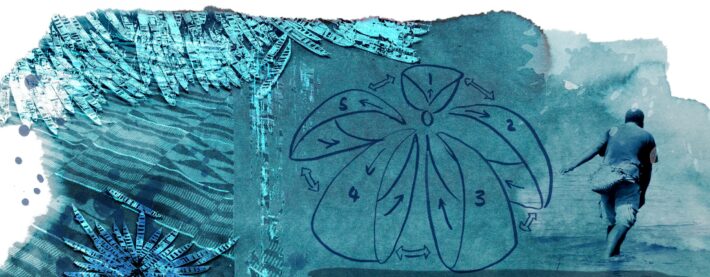FAO Policy and Legal Diagnostic Tool for Small-scale Fishers Published

The UN Food and Agriculture Organization (FAO) has published a landmark “Policy and Legal Diagnostic Tool for sustainable small-scale fisheries” in March 2022, which was co-developed with the One Ocean Hub. The Tool aims to support the identification of barriers and opportunities to support the implementation of the FAO Voluntary Guidelines for Securing Sustainable Small-Scale Fisheries (SSF) in the Context of Food in national laws and policies. This blogpost outlines the Hub’s contributions to the development of the Diagnostic Tool, and follow-up collaboration with FAO on e-learning tools and their relevance for the joint work programme for 2022 – the International Year of Artisanal Fisheries and Aquaculture.
Clarifying the human rights-based approach to small-scale fisheries
Hub research and experiences contributed to clarifying how to assess to what extent the human rights-based approach is already embedded in national laws and policies that are relevant for small-scale fishers. Hub’s inputs focused on the following points:
- Both laws and policies need to be aligned with international human rights law. In particular, laws are necessary to avoid discrimination or regression from international human rights obligations, and should clarify both public duties and the obligations of private actors to respect the human rights of small-scale fishers, so as to ensure access to justice and remedies in case of violations (FAO 2022-3-4).
- Both policy and law development need to ensure the full and effective participation of small-scale fishers, as both sets of instruments affect how their human rights are understood and protected. Attention should be paid in particular to the need for culturally appropriate ways to engage with indigenous peoples, for effective ways for women, children, and persons with disabilities to express their views, and for a safe and enabling environment for environmental human rights defenders (FAO 2022: 4).
- SSF actors need to be part of the policy and law review and development processes, to ensure that any reform or decision is attentive to their needs and concerns, and that their human rights are respected. With particular regard to customary tenure, customary laws and the collective rights of indigenous peoples over areas and resources, understanding can only arise in dialogue with representatives of indigenous peoples and other communities. Respecting SSF actors’ participatory rights also contributes to raise SSF actors’ awareness of relevant policies and laws, and their capacity to contribute to their effective implementation (FAO 2022: 9)
- Non-binding international instruments on human rights are helpful in supporting the coherent implementation of States’ obligations at the national level within a country (2020; Morgera and Nakamura, 2021), such as the UN Declaration on the Rights of Indigenous Peoplesand the UN Declaration on the Rights of Peasants (FAO 2022: 12).
- Traditionally national fisheries policy and legal instruments have not addressed the full range of cultural concerns related to sustainable fisheries (FAO 2022:15).
- Specific attention should be paid to concerns or question as to whether international human rights are sufficiently protected in legislation, as opposed to policy, or whether they are clearly legally enforceability (FAO 2022:23).
- Next steps must include raising awareness on the national policy and legal instruments relevant to SSF, engaging with small-scale fishers in both formal and informal ways to reach the grassroots (FAO 2022: 28).
Building on a series of joint activities with FAO
The Hub contributions to the Diagnostic Tool built on a variety of collaborative activities that had been undertaken with FAOm which are acknowledged in the Tool:
- Facilitating direct inputs from small-scale fishers’ representatives from Ghana, Namibia, and South Africa who attended the FAO-Hub Regional Training Workshop on SSF in 2021, including Hilda Adams, Glenn Kasper, Pedro Garcia and Abaka-Edu. Hub researchers Taryn Pereira (Rhodes University), Bolanle Erinosho (University of Cape Coast), Sirrka Tshiningayamwe and Martha Jonas (University of Namibia) facilitated their participation in the workshop.
- Providing inputs and feedback on drafts by Hub researchers Elisa Morgera and Senia Febrica (University of Strathclyde), Bolanle Erinosho and Joseph Aggrey-Fynn (University of Cape Coast), Jackie Sunde (University of Cape Town), Warwick Sauer (Rhodes University), Alex Kanyimba and Tapiwa Warikandwa (University of Namibia), and Patrick Vrancken and Anthea Christoffels-Du Plessis (Nelson Mandela University).
- Relying on Hub academic paper by Elisa Morgera and early-career researcher Julia akamura (University of Strathclyde).‘Shedding a Light on the Human Rights of Small-scale Fishers: Complementarities and Contrasts between the UN Declaration on Peasants’ was cited in various parts of the Tool (FAO 2022: 3-4, 12)
- Co-organizing, as a way to test the draft tool, a virtual Regional Training Workshop on Sustainable Small-Scale Fisheries (SSF) in South Africa, Ghana, and Namibia in April 2021, bringing together researchers, representatives of the FAO and government agencies, and small-scale fishers.
Outlook
At present, the Hub is working with the FAO and the UN Office of the High Commissioner for Human Rights to organize a series of engagements to strengthen the recognition and protection of human rights of small-scale fishers and their communities during the International Year of Artisanal Fisheries and Aquaculture – 2022.
In addition, FAO and the Hub are co-developing two e-learning courses to advance the understanding of the human rights-based approach to SSF, which will be made available on the FAO E-learning Academy. The first courses is meant to respond to government officers’ and fishers’ needs respectively, to implement the FAO Guidelines. The second e-learning course will directly addressing the question and challenges of small-scale fishers and their advocates in invoking international law and human rights in their daily interactions with authorities and other stakeholders, based on Hub partnerships with small-scale fishing organizations in Namibia, Ghana and South Africa.